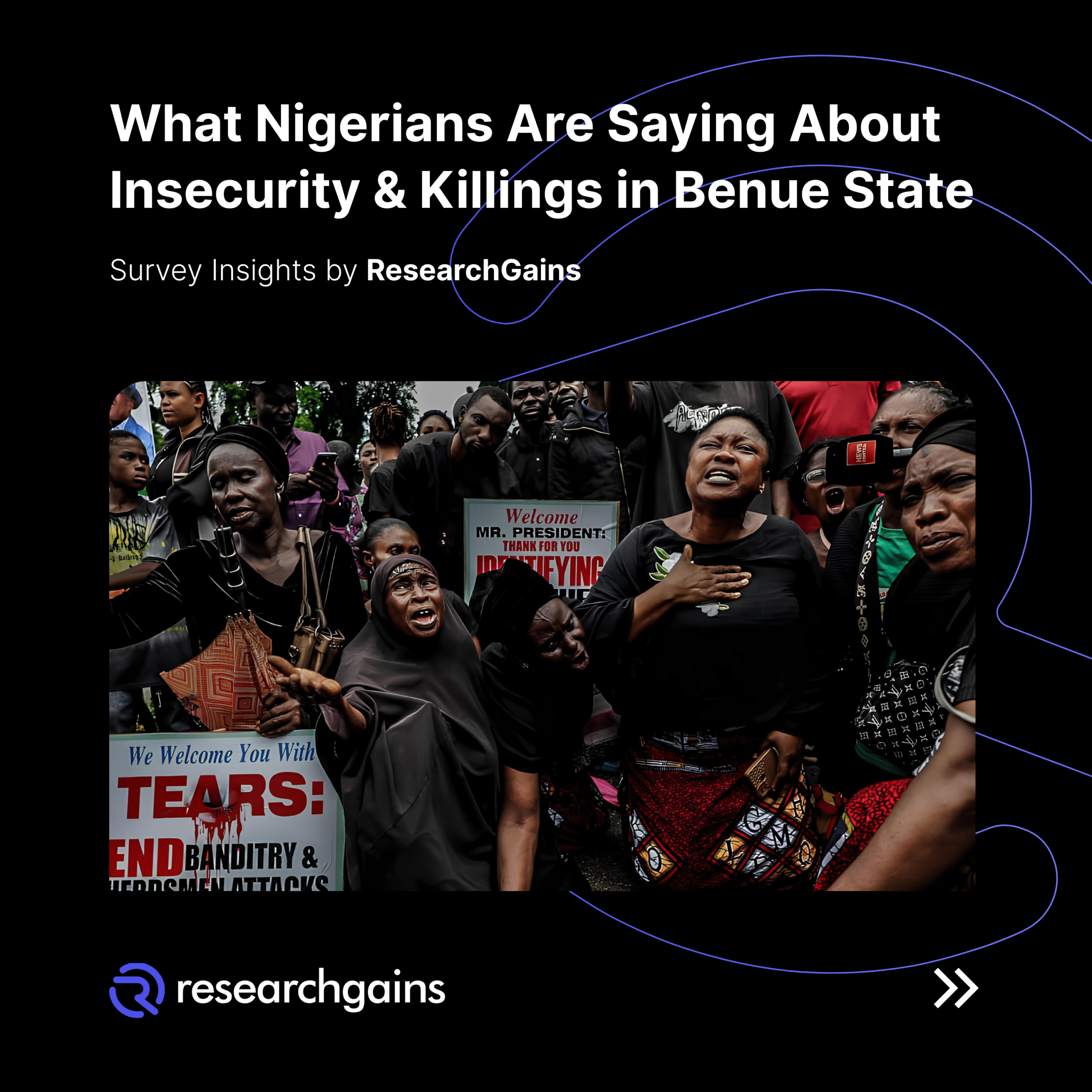
INSECURITY AND KILLINGS IN BENUE STATE: WHAT NIGERIANS ARE REALLY SAYING
INSECURITY AND KILLINGS IN BENUE STATE: WHAT NIGERIANS ARE REALLY SAYING
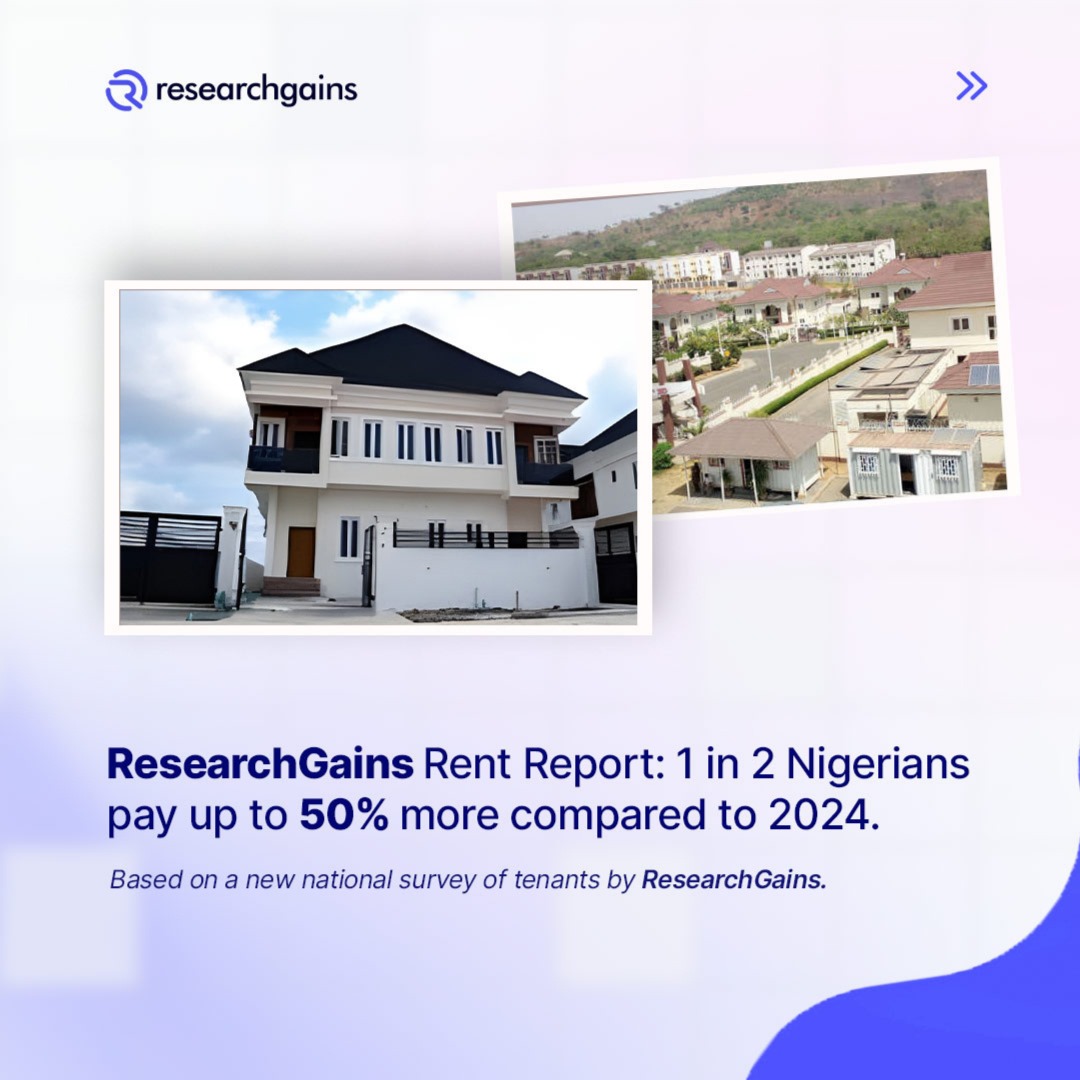
BALOGUN Babatunde Aug 20, 2025
REPORTRising House Rent in Nigeria
Introduction The Nigerian housing sector has witnessed significant volatility in recent years, with a surge in rental costs posing a major challenge for both employed and unemployed citizens. Driven by inflationary pressures, rising construction costs, and economic uncertainty, house rent affordability has become a critical socio-economic issue. This study provides […]
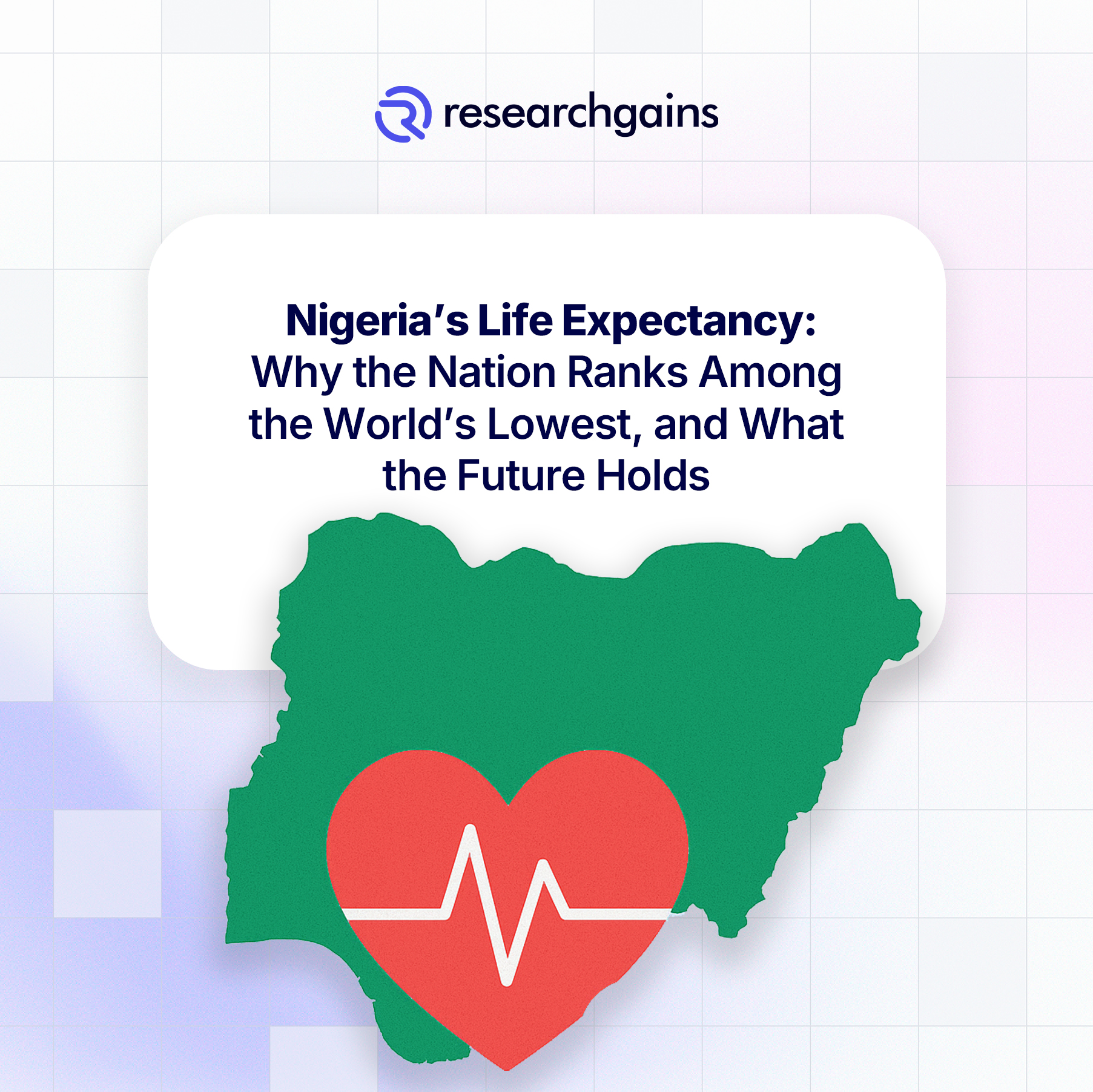
BALOGUN Babatunde Aug 12, 2025
HEALTHCAREWHERE NIGERIA STANDS IN A CHANGING WORLD
Introduction Life expectancy, defined as the average number of years a person can expect to live, is more than just a health statistic. It is a mirror reflecting a country’s quality of life, healthcare access, economic stability, and even cultural resilience. In the past decades, the world has seen remarkable […]
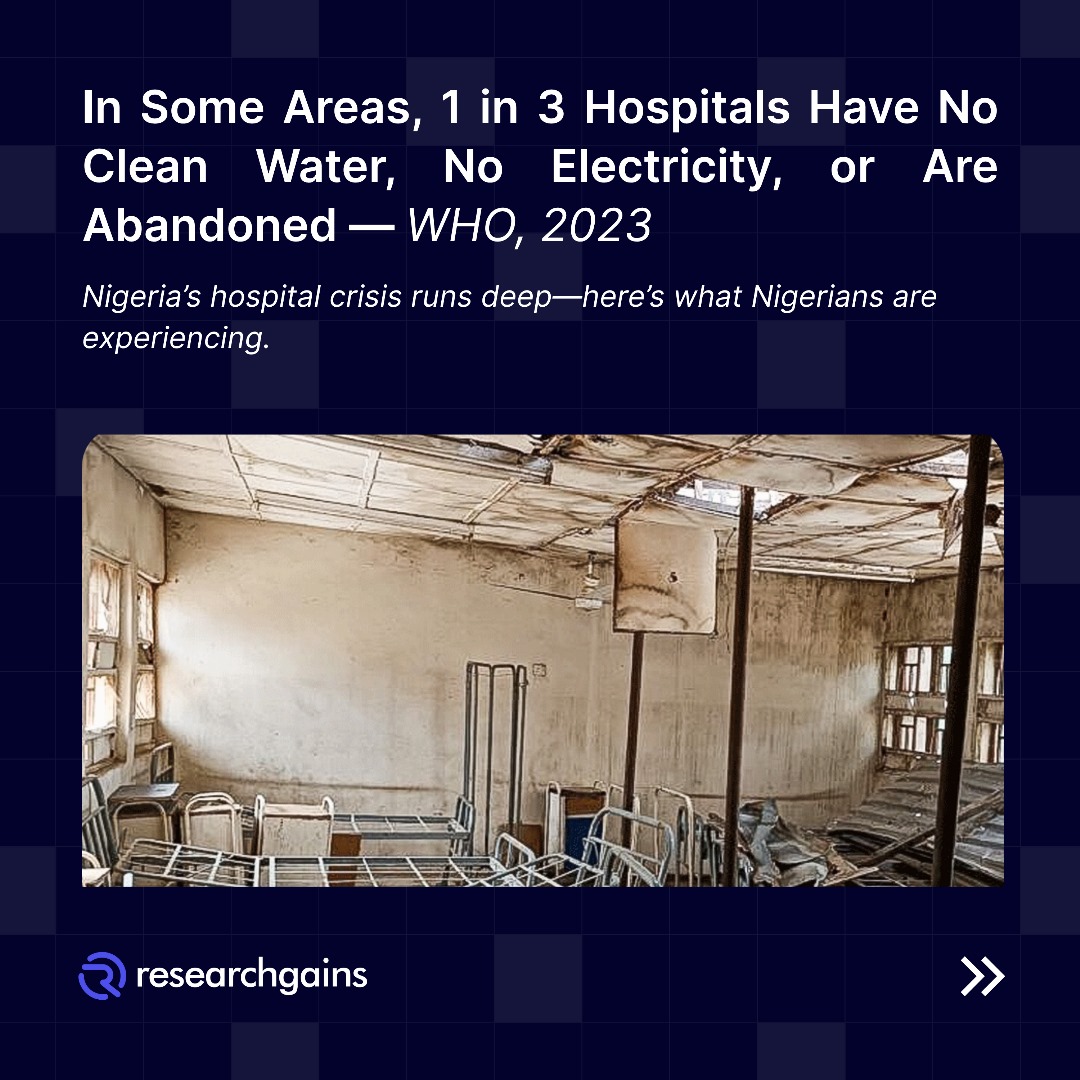
Aug 4, 2025
HEALTHCAREWhat Nigerians Are Really Saying About Hospital Access
Introduction In Nigeria, going to the hospital should not feel like a gamble. And yet, for many, it does. From unreliable equipment and poor infrastructure to long travel distances and unpredictable service, healthcare in the country often falls short of what people need, and deserve. At ResearchGains, we wanted to […]
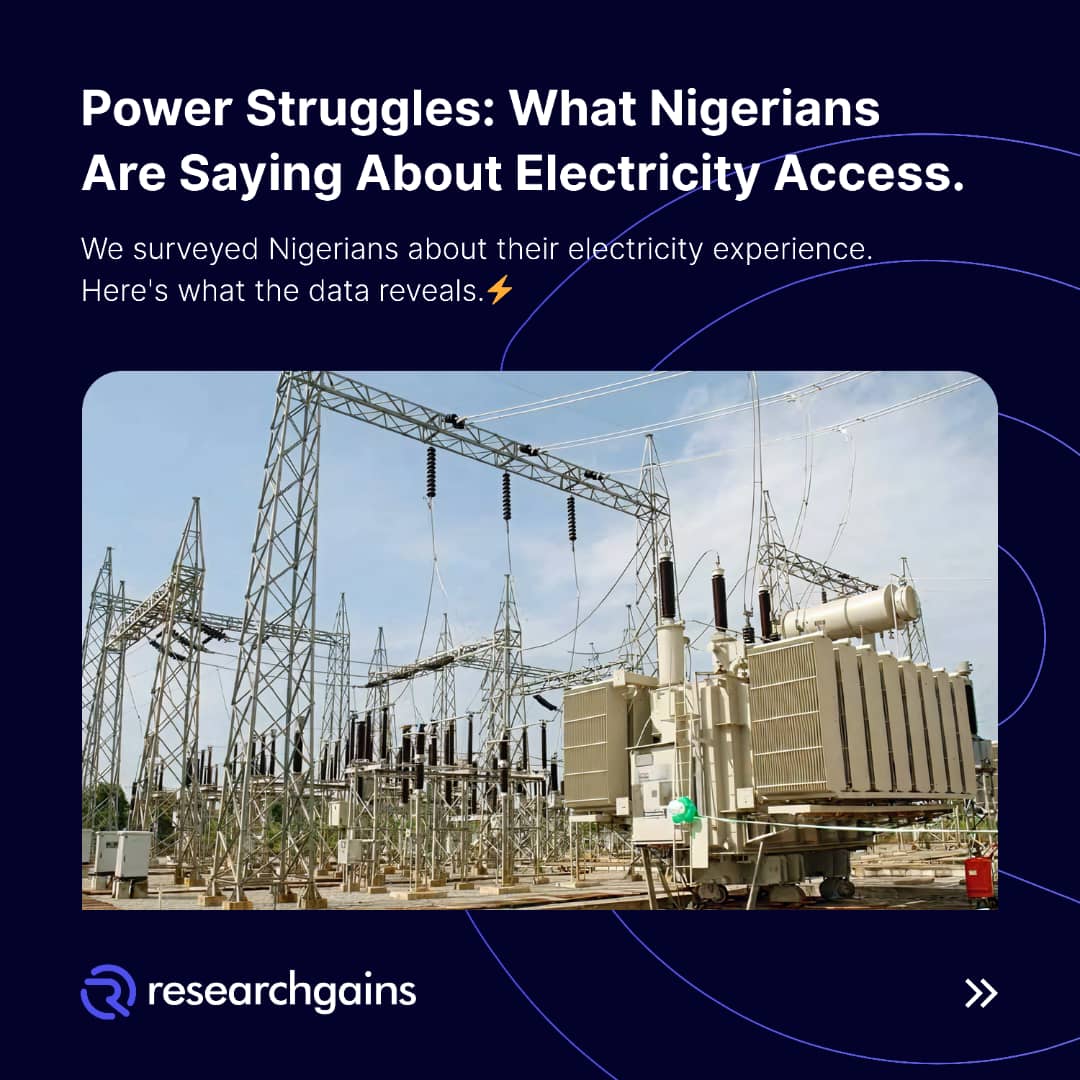
BALOGUN Babatunde Jul 28, 2025
MANUFACTURINGWHAT NIGERIANS ARE SAYING ABOUT ELECTRICITY STRUGGLES
Introduction Electricity is more than a convenience, it is the backbone of modern life, powering homes, businesses, education, and innovation. In Nigeria, however, the struggle for stable and affordable electricity remains a daily challenge for millions. Despite decades of reforms, privatization efforts, and national promises, the question still lingers: Has […]
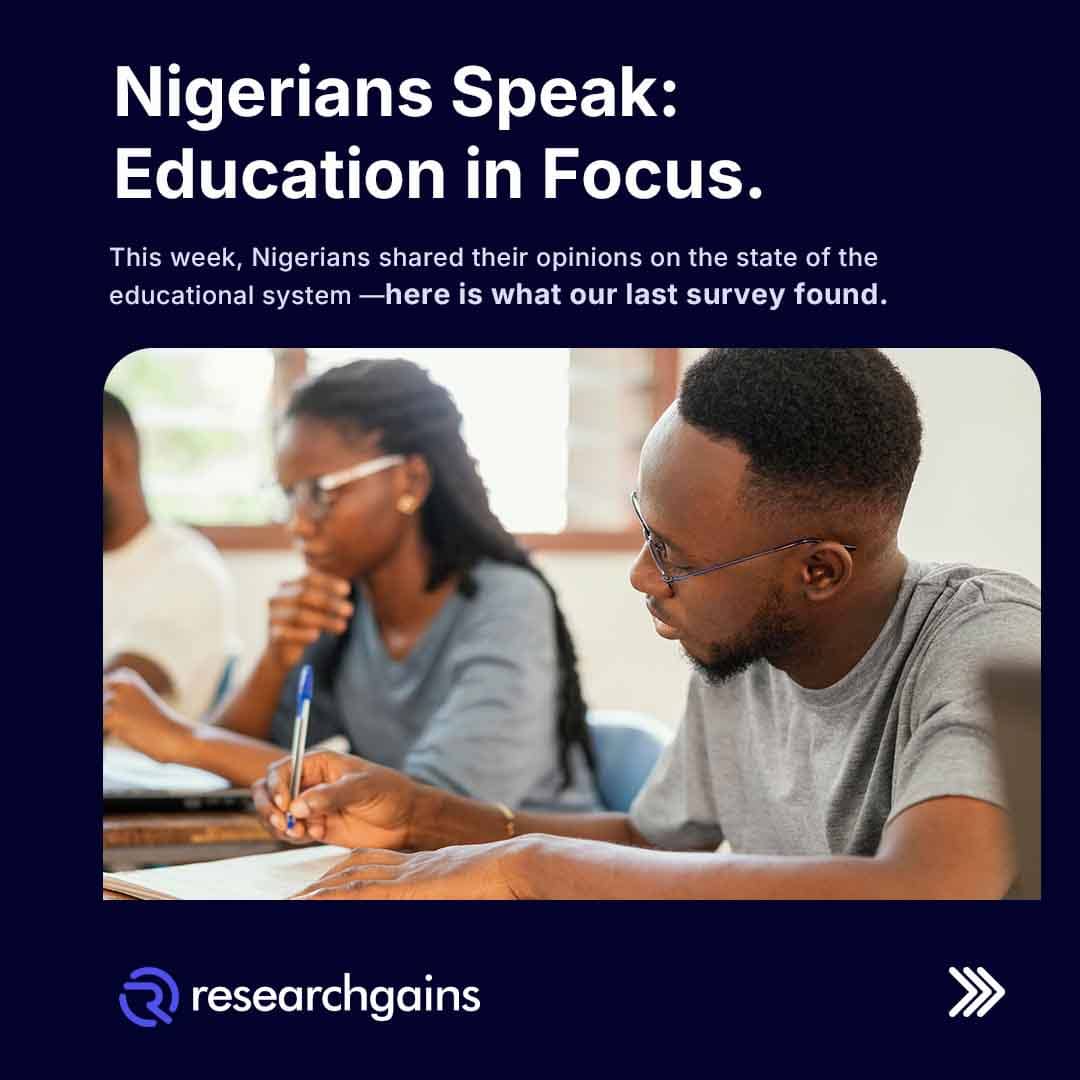
BALOGUN Babatunde Jul 28, 2025
EDUCATIONNIGERIANS SPEAK, EDUCATION IN FOCUS
Introduction In Nigeria, education is often touted as the bedrock of development. Yet each year, discussions on education reveal major gaps in quality, access, and equity across the country’s learning system. Widespread exam malpractice, chronic underfunding, and inconsistent policies keep Nigeria’s education system under constant public scrutiny, criticism, and growing […]
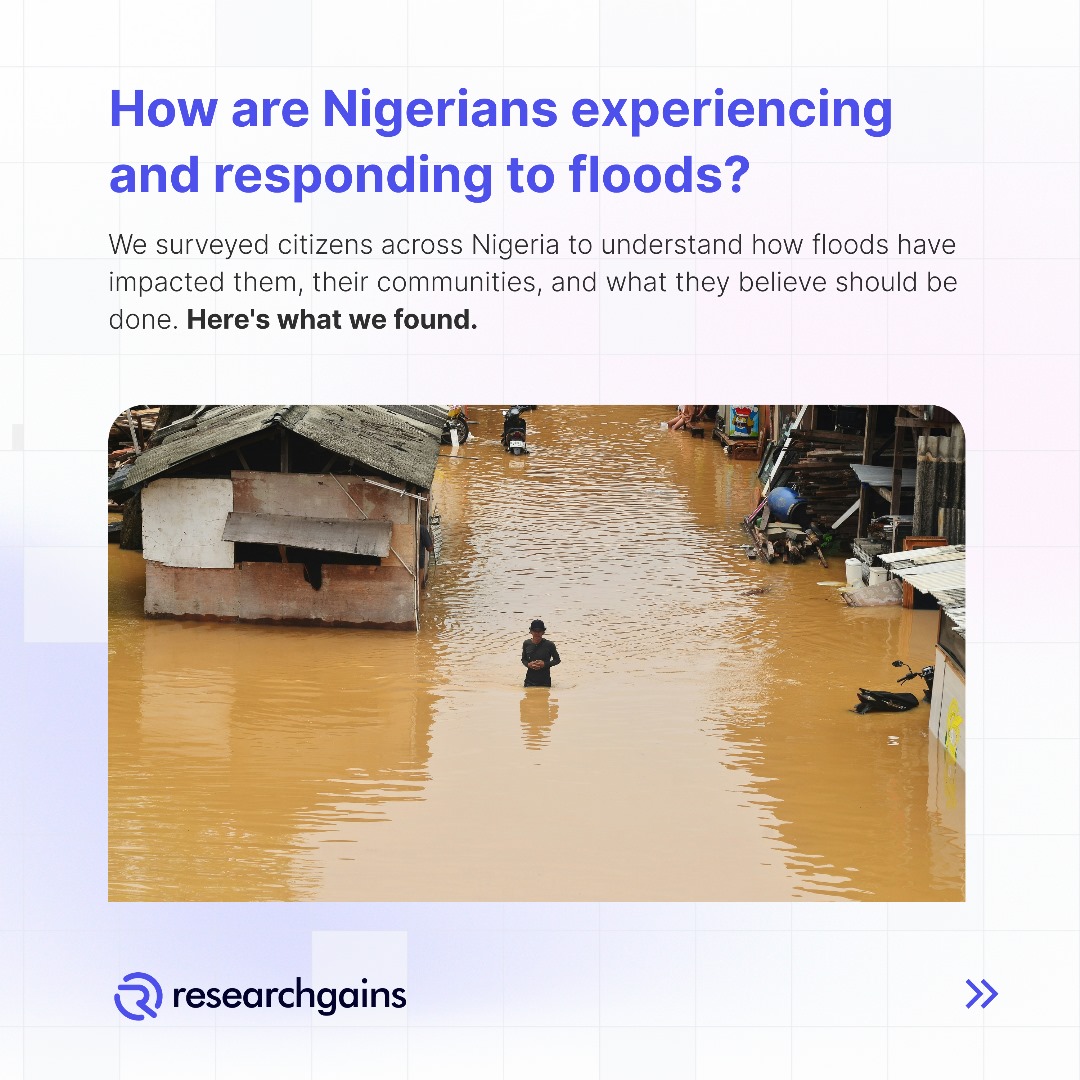
Jul 25, 2025
UNCATEGORIZEDHOW ARE NIGERIANS EXPERIENCING AND RESPONDING TO FLOODS.png
Introduction Flooding is no longer an occasional inconvenience in Nigeria; it has become a recurring national crisis. Year after year, lives are lost, properties are destroyed, and livelihoods are disrupted as communities struggle to adapt to increasingly severe and frequent flood events. From the overflowing banks of the Niger River […]

Jul 25, 2025
POLITICSWHAT NIGERIANS ARE SAYING ABOUT INSECURITY IN BENUE STATE
Introduction Benue State, once known as the “Food Basket of the Nation,” has become a tragic symbol of Nigeria’s deepening insecurity crisis. For years, reports of attacks, displacement, and violent killings have poured in from the region. These events are not just statistics, they represent shattered families, lost livelihoods, and […]
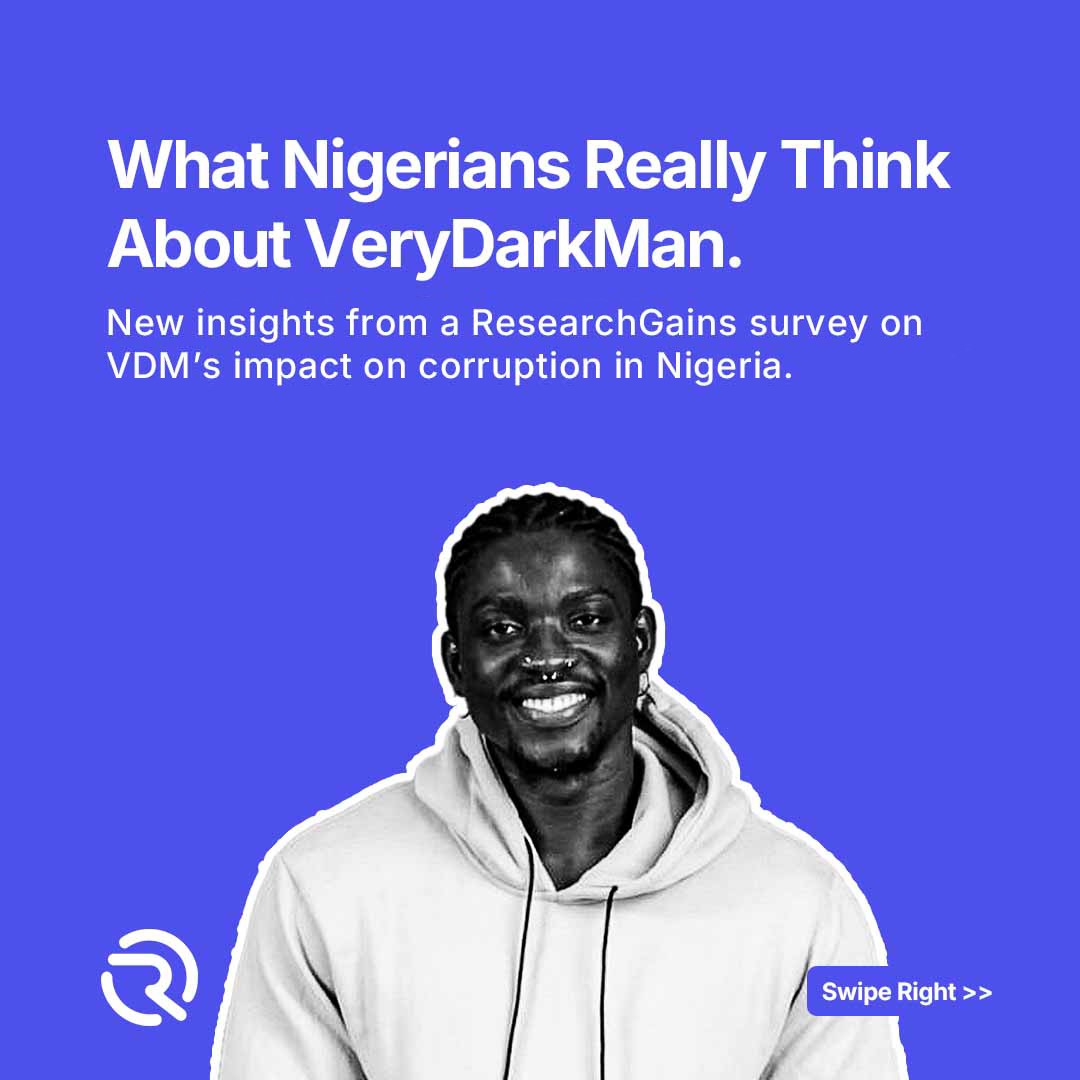
Jul 23, 2025
POLITICSWHAT NIGERIANS REALLY THINK ABOUT VERYDARKMAN AND HIS FIGHT AGAINST CORRUPTION
Introduction: A Voice Disrupting the Silence In a country where corruption runs deep and whistleblowers are often silenced, VeryDarkMan (VDM) has emerged as an unlikely symbol of resistance, a raw, unfiltered, digital activist who speaks boldly where others stay silent. Armed with nothing but his voice and a phone camera, […]
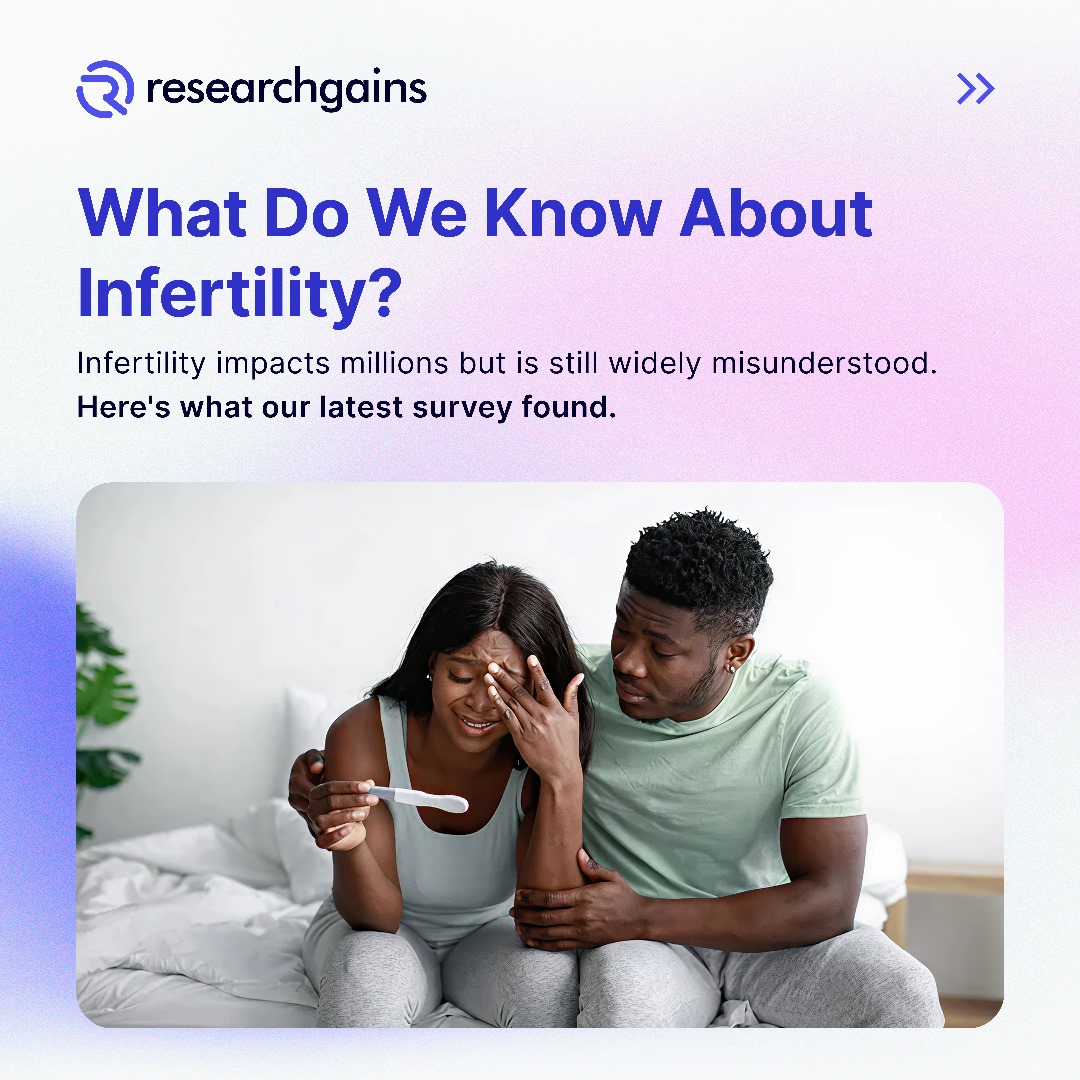
BALOGUN Babatunde Jul 22, 2025
HEALTHCAREINFERTILITY IN NIGERIA BREAKING THE SILENCE AROUND A SHARED STRUGGLE
INFERTILITY IN NIGERIA: BREAKING THE SILENCE AROUND A SHARED STRUGGLE Infertility is more common than we often acknowledge, and more emotionally complex than many care to admit. While it affects millions of people around the world, in countries like Nigeria, it remains a silent struggle, often buried under layers of […]
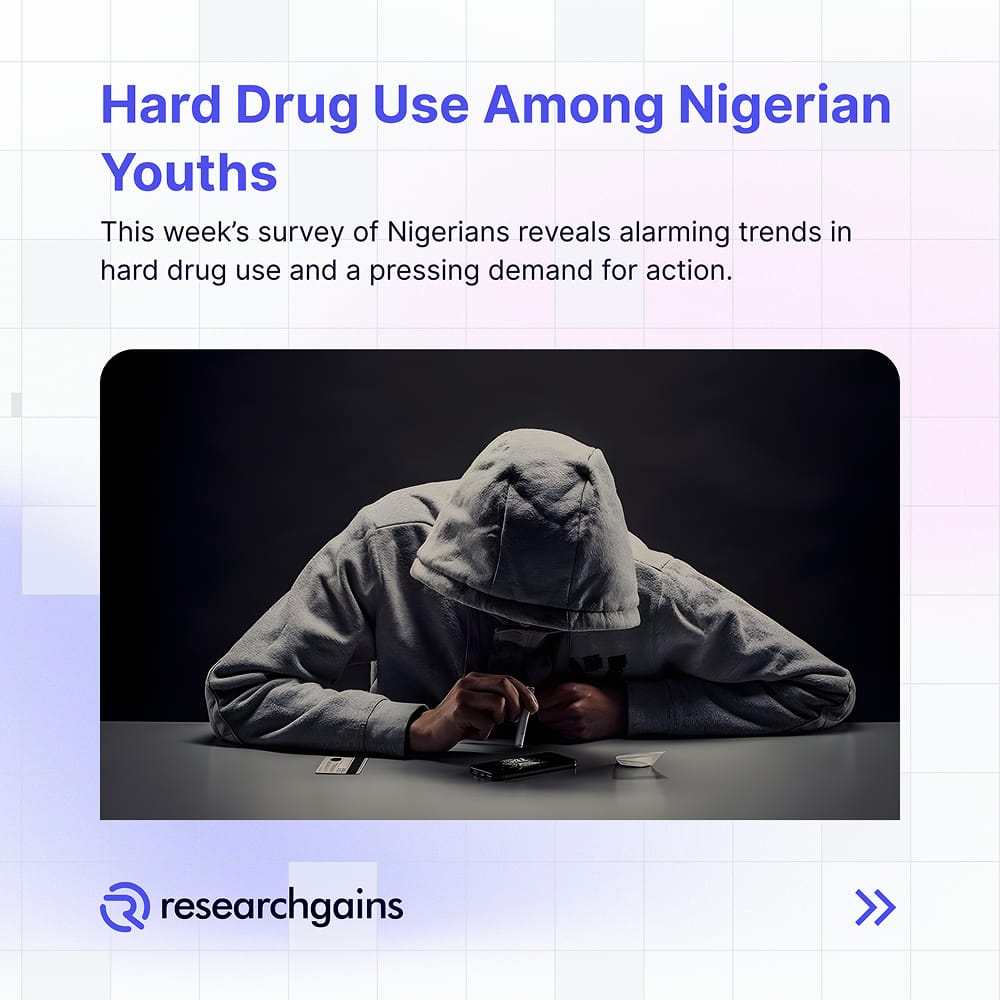
BALOGUN Babatunde Jul 22, 2025
HEALTHCAREHARD DRUG USE AMONG NIGERIAN YOUTHS
Introduction In recent years, the conversation around drug abuse in Nigeria has grown more urgent, and more complex. What was once whispered about in the corners of society has now become a full-blown public health concern, especially among young people. From prescription drug misuse to the rise of recreational narcotics, […]